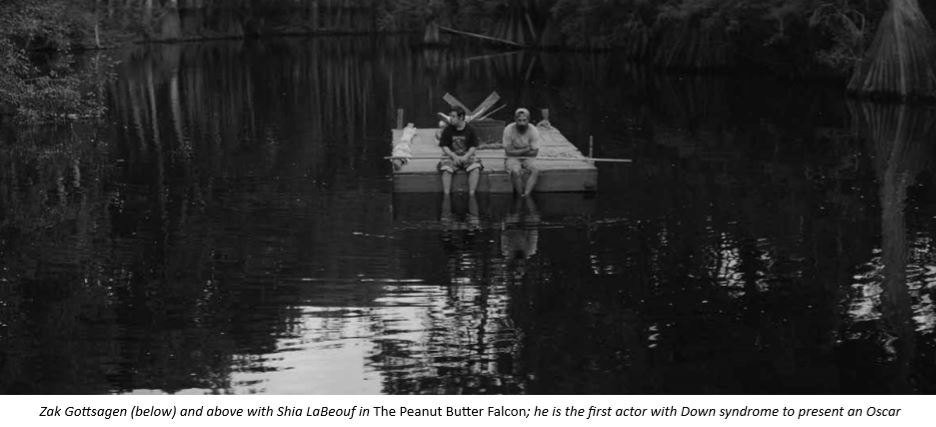The lack of diversity at TV and film awards ceremonies has hit the headlines. Tracey Harding considers the neglected disability angle of this debate
The British Academy of Film Awards(BAFTA) was criticised recently over its male-dominated best director category, and the lack of actors of colour in any of the major acting categories. While this sparked necessary debate and attention, missing from the discussion was any mention of learning and physical disabilities. A letter to the London Evening Standard, published after the awards evening, eloquently highlighted the omission. Hannah Clarke, a digital assistant at Mencap, addressed the lack of recognition of actors with learning disabilities at the BAFTA awards: “With only 2.7 per cent of speaking characters in popular movies depicted as having a disability, and just 12 per cent of people recalling someone with a learning disability in film, change is not happening quickly enough… “Disabled people like me face stigma and discrimination every day. TV and film can change people’s attitudes towards disability.” In 2019, BAFTA became the first major awards body to introduce inclusion and diversity criteria into the eligibility requirements for their awards. It said productions needed to demonstrate that they had worked to include underrepresented groups in areas including
on-screen presence and in themes and narratives. A positive step was BAFTA’s decision to recognise learning disabilities in this year’s For the Love of Film competition. Now in its second year, this competition involves a nationwide search for people “whose passion for film makes them legendary in their communities”. Winners are invited to spend an evening at the British Academy Film Awards. This year saw an award made to Lizzie Banks, the producer of the Oska Bright Film Festival, a four-day festival in Brighton featuring films made for and by people with learning disabilities, autism and Asperger syndrome. While this is an amazing achievement, as Clarke emphasised in her letter, there is still a long way to go for people with learning disabilities to be recognised in the same way as other groups, and all eyes will be on the awards in 2021 to see if there have been any significant changes in their awareness of disabiliti es. In a similar vein, and turning attention to another awards ceremony, the Oscars were also highlighting their recognition of diverse creativity, albeit in a small but resonant way. In the last issue, Community Living featured a review of the film The Peanut Butter Falcon, which starred Zak Gottsagen, an actor with Down syndrome (page 27). Gottsagen gave a nuanced performance in a leading mainstream film and, in a historic moment at the 2020 awards, he became the first actor with Down syndrome to present an Oscar. With his costar Shia LaBeouf at the ceremony in February, he presented the Oscar for the live action short film category. Reviewers had suggested that Gottsagen might have received an award nomination for his performance, and his appearance was met with widespread support and acclaim. In the end, as the media focus on recognition for diversity has highlighted, change is essential if we are ever to reach the point where we no longer need to focus on the omission of people with learning disabilities and, instead, can focus on their achievements and talent.
es. In a similar vein, and turning attention to another awards ceremony, the Oscars were also highlighting their recognition of diverse creativity, albeit in a small but resonant way. In the last issue, Community Living featured a review of the film The Peanut Butter Falcon, which starred Zak Gottsagen, an actor with Down syndrome (page 27). Gottsagen gave a nuanced performance in a leading mainstream film and, in a historic moment at the 2020 awards, he became the first actor with Down syndrome to present an Oscar. With his costar Shia LaBeouf at the ceremony in February, he presented the Oscar for the live action short film category. Reviewers had suggested that Gottsagen might have received an award nomination for his performance, and his appearance was met with widespread support and acclaim. In the end, as the media focus on recognition for diversity has highlighted, change is essential if we are ever to reach the point where we no longer need to focus on the omission of people with learning disabilities and, instead, can focus on their achievements and talent.
